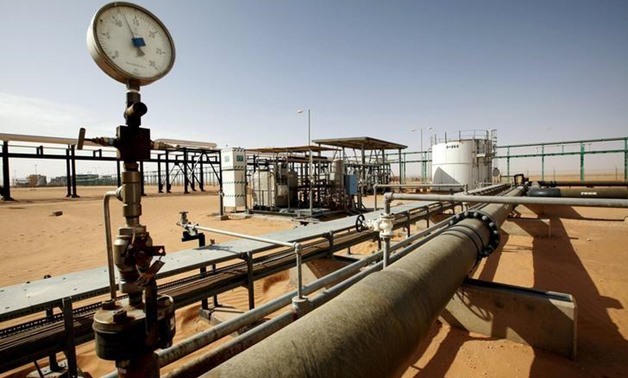
FILE PHOTO: A general view of the El Sharara oilfield, Libya December 3, 2014. REUTERS/Ismail Zitouny/File Photo
BEIJING - 1 November 2018: Oil prices fell on Thursday to extend losses from the previous session, pressured by signs of rising supply and by growing concerns that demand may weaken on the prospect of a global economic slowdown.
Brent crude futures for January had dropped 37 cents, or 0.49 percent, to $74.67 per barrel by 0527 GMT. West Texas Intermediate (WTI) crude futures declined 29 cents to $65.02 a barrel.
Both benchmarks posted their worst monthly performance since July 2016 on Wednesday, with Brent down 8.8 percent for the month and WTI shedding 10.9 percent.
Thursday’s drops came after U.S. Energy Information Administration data showed U.S. crude inventories last week climbed for a sixth straight week.
“The strong build in oil inventories is likely to keep downward pressure on oil prices,” ANZ Research analysts said in a note.
Meanwhile, a Reuters survey found the Organization of the Petroleum Exporting Countries (OPEC) boosted oil production in October to its highest since 2016, as higher output led by the United Arab Emirates and Libya more than offset a cut in Iranian shipments due to U.S. sanctions, set to start on Nov. 4.
U.S. President Donald Trump said on Wednesday in a presidential memorandum that he had determined there was sufficient supply of petroleum and petroleum products from nations other than Iran to permit a reduction in purchases from that country.
Wall Street closes with tech-led gains
Growing concerns over the prospect of a global slowdown amid the ongoing U.S-China trade war were also weighing on prices, said Bruce Xue, an analyst with Huatai Great Wall Capital Management.
“Oil investors are now betting on the potential of a global slowdown,” Xue said.
China’s manufacturing sector in October expanded at its weakest pace in over two years, hurt by slowing domestic and external demand, in a sign of deepening cracks in the economy from an intensifying trade war with the United States.

Comments
Leave a Comment